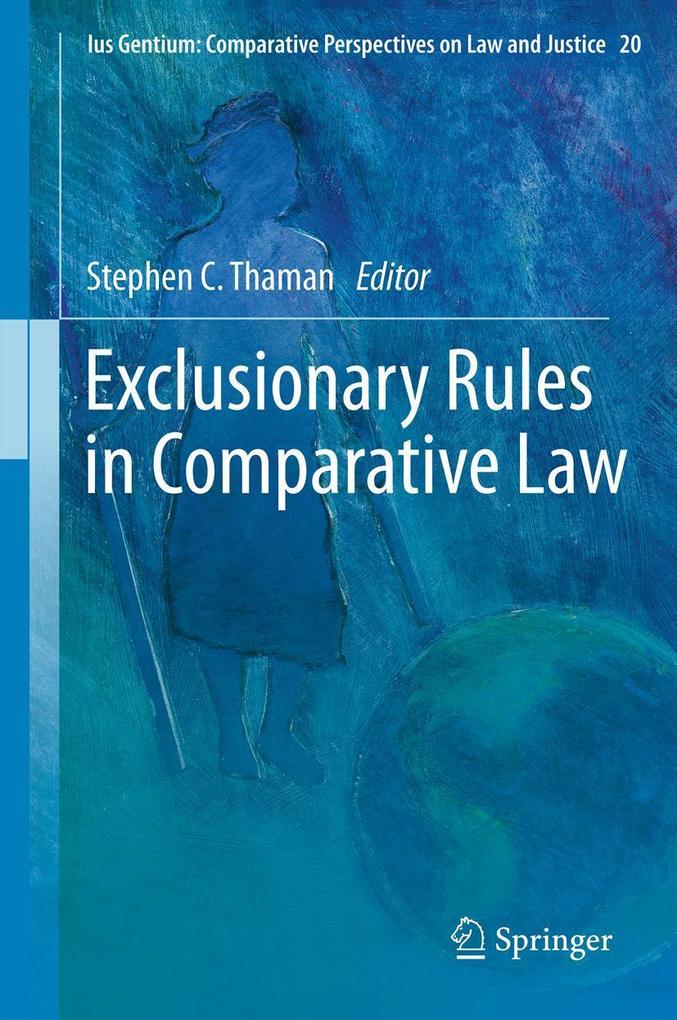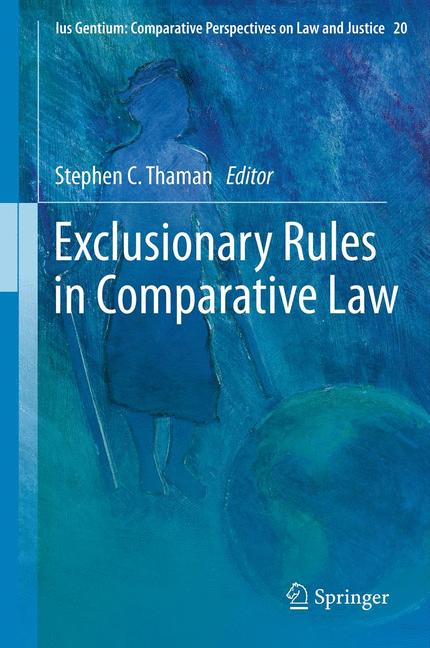Bücher versandkostenfrei*100 Tage RückgaberechtAbholung in der Wunschfiliale

Zustellung: Mo, 10.02. - Mi, 12.02.
Versand in 2 Tagen
VersandkostenfreiBestellen & in Filiale abholen:
This comparative examination of rules excluding illegally gathered evidence in the criminal trial encompasses 15 country studies, includes a chapter on the European Court of Human Rights and offers a comparative synthetic conclusion.
This book is a comparative study of the exclusion of illegally gathered evidence in the criminal trial , which includes 15 country studies, a chapter on the European Court of Human Rights, and a comparative synthetic conclusion. No other book has undertaken such a broad comparative study of exclusionary rules, which have now become a world-wide phenomenon. The topic is one of the most controversial in criminal procedure law, because it reveals a constant tension between the criminal court's duty to ascertain the truth, on the one hand, and its duty to uphold important constitutional rights on the other, most importantly, the privilege against self-incrimination and the right to privacy in one's home and one's private communications.
The chapters were contributed by noted world experts on the subject for the XVIII Congress of the International Academy of Comparative Law in Washington in July 2010.
Inhaltsverzeichnis
Introduction; Stephen C. Thaman. - Part One: The Vicissitudes of Court-Made Exclusionary Tests: Section One: Common Law Jurisdictions. - Chapter 1: The United States: The Rise and Fall of the Constitutional Exclusionary Rule; Mark E. Cammack. - Chapter 2: Ireland: A Move to Categorical Exclusion? ; Arnaud Cras and Yvonne Daly. - Chapter 3: Scotland: A Plea for Consistency; Fiona Leverick and Findlay Stark. - Chapter 4: Israel: The Supreme Court s New, Cautious Exclusionary Rule; Yuval Merin and Rinat Kitai-Sangero. - Part One: The Vicissitudes of Court-Made Exclusionary Tests:Section Two: Civil Law Balancing. - Chapter 5: Germany: Balancing Truth against Protected Constitutional Interests; Sabine Gless. - Part Two: From Nullities to Statutory Exclusionary Rules in Continental Europe: Section One: The Traditional Approach Based on Statutory Nullities. - Chapter 6: France: Procedural Nullities and Exclusion; Jean Pradel. - Part Two: From Nullities to Statutory Exclusionary Rules in Continental Europe: Section Two: From Nullities to Balancing. - Chapter 7: Belgium: From Categorical Nullities to a Judicially Created Balancing Test; Marie-Aude Beernaert and Philip Traest. - Chapter 8: The Netherlands: Statutory Balancing and a Choice of Remedies: Matthias Borgers and Lonneke Stevens. - Part Two: From Nullities to Statutory Exclusionary Rules in Continental Europe: Section Three: From Nullities to Statutory Exclusionary Rules. - Chapter 9: Spain: The Constitutional Court s Move From Categorical Exclusion to Limited Balancing; Lorena Bachmaier Winter. - Chapter 10: Italy: Statutory Nullities and Non-Usability; Giulio Illuminati. - Chapter 11: Greece: From Nullities to Categorical Statutory and Constitutional Exclusionary Rules; George Triantafyllou. - Chapter 12: Turkey: The Move to Categorical Exclusion of Illegally Gathered Evidence; Adem Sözüer. - Chapter 13: Serbia: Courts Struggle With a New CategoricalStatutory Exclusionary Rule; Snežana Brki . - Part Three: The Fair Trial Test for Exclusion. - Chapter 14: England and Wales: Fair Trial Analysis and the Presumed Admissibility of Physical Evidence; Andrew L-T Choo. - Chapter 15: Taiwan: The Codification of a Judicially-Made Discretionary Exclusionary Rule; Jaw-perng Wang. - Chapter 16: The European Court of Human Rights: The Fair Trial Analysis under Article 6 of the European Convention of Human Rights; Pinar Ölcer. - Part Four: A Comparison of Exclusionary Jurisprudence. - Chapter 17: Balancing Truth Against Human Rights: A Comparative Analysis of the Use of Illegally Gathered Evidence in the Criminal Trial; Stephen C. Thaman. -About the contributors. - index.
Mehr aus dieser Reihe
Produktdetails
Erscheinungsdatum
29. Januar 2015
Sprache
englisch
Auflage
2013
Seitenanzahl
472
Reihe
Ius Gentium, Comparative Perspectives on Law and Justice, 20
Herausgegeben von
Stephen C. Thaman
Verlag/Hersteller
Produktart
kartoniert
Abbildungen
XVI, 456 p.
Gewicht
709 g
Größe (L/B/H)
235/155/26 mm
Sonstiges
Previously published in hardcover
ISBN
9789400798496
Entdecken Sie mehr
Bewertungen
0 Bewertungen
Es wurden noch keine Bewertungen abgegeben. Schreiben Sie die erste Bewertung zu "Exclusionary Rules in Comparative Law" und helfen Sie damit anderen bei der Kaufentscheidung.























